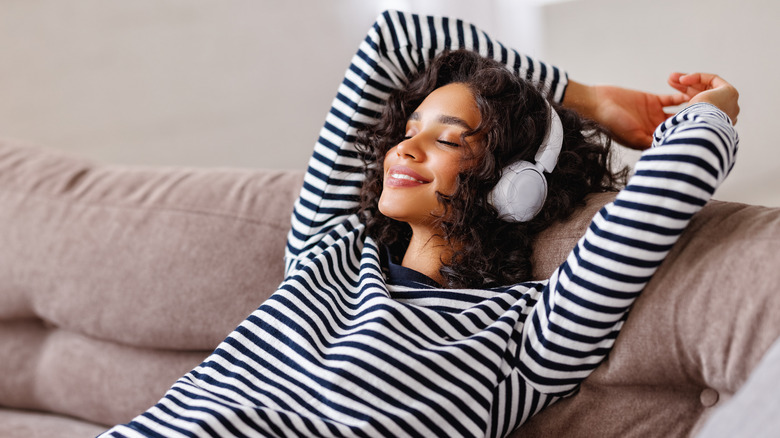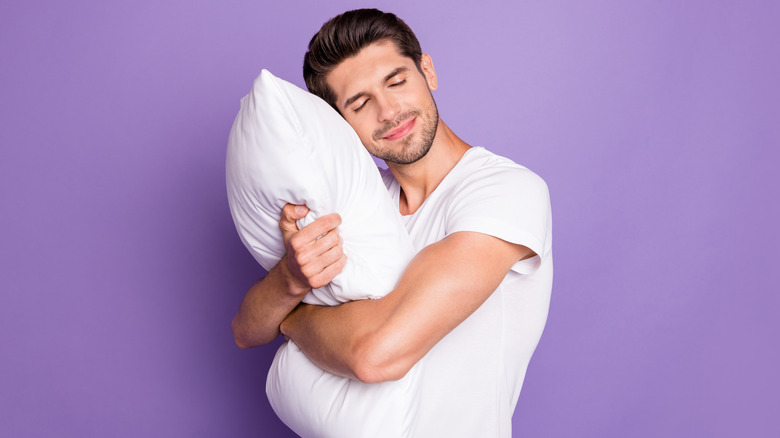Why Your Therapist May Soon Recommend Sensory Therapy To Treat Your Anxiety
While anxiety is a normal response to stress, it can sometimes become so overwhelming that it takes over your life. We are wired for survival. When your brain senses danger, it triggers your "fight or flight" response, per Harvard Health Publishing. When this part of your nervous system is overactive, however, it can lead to anxiety (via Verywell Health).
If you find yourself in true danger, your stress response can be life-saving. But sometimes, it gets stuck in the "on" position, causing you to feel constant anxiety, no matter the situation, per Verywell Health. Getting chased down by a creditor is not the same as getting chased down by a grizzly bear, but if you have anxiety, your brain and body may react as if it is. According to Harvard Health Publishing, the key to circumventing this "fight or flight" response is to find ways to trigger your body's relaxation response.
Luckily, there are many ways to do this. While medication and therapy are commonly used for treating anxiety, per Healthline, recent studies have shown that sensory therapy may be an effective method for improving your mental health as well.
How sensory therapy can reduce anxiety
Clinical psychologist, Dr. Carla Marie Manly told Healthline, "In the realm of psychology, sensory therapy involves the use of visual and kinesthetic components to treat mental health issues such as stress, anxiety, and emotional dysregulation."
One way to utilize sensory therapy is through the magic of music. In a 2022 study published in PLOS One, researchers studied the effects of calming music combined with auditory beat stimulation in the form of theta frequency waves. They found that this combination significantly reduced feelings of anxiety in participants after just one 24-minute session.
In addition to sound-based sensory therapies, researchers have also found that tactile-based interventions can dramatically reduce feelings of anxiety. In a 2022 study published in PLOS One, researchers created a cushion that simulates slow and calm breathing. They then studied the effects that their huggable pillow had on pre-test anxiety. The group of participants who used the cushion reported significantly lower anxiety levels than those who didn't. Even if you don't have access to a huggable pillow that breathes, you may find that incorporating other sensory-based therapy techniques into your routine may help you find relief from feelings of anxiety.


